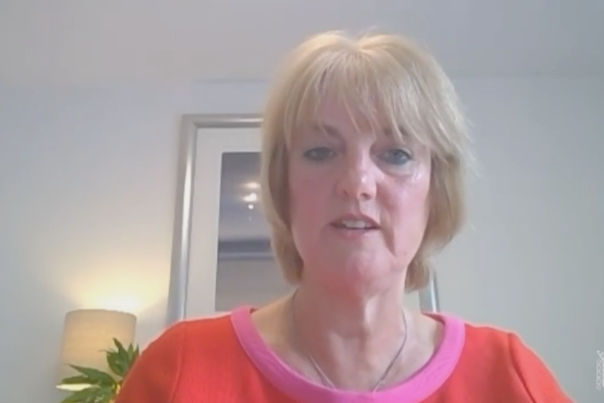Coronavirus: High-risk pregnancies could be missed due to pandemic, experts warn
'Some of that is related to the fear of the pregnant population and presenting to maternity services during the pandemic,' says Royal College of Midwives chief executive

Your support helps us to tell the story
From reproductive rights to climate change to Big Tech, The Independent is on the ground when the story is developing. Whether it's investigating the financials of Elon Musk's pro-Trump PAC or producing our latest documentary, 'The A Word', which shines a light on the American women fighting for reproductive rights, we know how important it is to parse out the facts from the messaging.
At such a critical moment in US history, we need reporters on the ground. Your donation allows us to keep sending journalists to speak to both sides of the story.
The Independent is trusted by Americans across the entire political spectrum. And unlike many other quality news outlets, we choose not to lock Americans out of our reporting and analysis with paywalls. We believe quality journalism should be available to everyone, paid for by those who can afford it.
Your support makes all the difference.Experts have raised fears that high-risk pregnancies may be missed due to the coronavirus pandemic, leading to a potential rise in stillbirths and neonatal deaths.
During a session of Westminster’s health and social care committee, Gill Walton, the chief executive of the Royal College of Midwives, said there was a “fear” among pregnant women presenting themselves to maternity services during the covid-19 outbreak.
It comes as the NHS urges the public to seek treatment for medical emergencies or where necessary – after it was claimed four in 10 people are not seeking help from a GP because of concerns they become a burden on the health services.
Former health secretary Jeremy Hunt, who chairs the committee, said one of the most important elements of maternity safety was to identify higher-risk pregnancies early “so that interventions can be made to prevent stillbirths, complications, or even the death of a baby”.
Mr Hunt added the president of the Royal College of Obstetricians, Dr Edward Morris, had told him he is “worried that some higher-risk pregnancies may be being missed” because of fewer face-to-face appointments and missed scans.
Asked whether she shared that concern, Ms Walton told MPs: “I do share that concern. Some of that is related to the fear of the pregnant population and presenting to maternity services during the pandemic.
"That fear then prevents them sometimes just picking up the phone to call their midwife to say that may be concerned about not feeling well, or that they’ve got reduced foetal movements.”
She continued: "I believe that maternity services have tried their very best to try and keep providing as much of a normal service as possible.
"I do think it's really important to be getting that message out that maternity services are still open and that women should come forward so that we can keep them and their babies as well as possible."
The chief executive of the RCM added, however, that follow-ups on women who miss scans and appointments had been enhanced. “One of the positives from the pandemic is the use of technology, so there has been more virtual contact and follow-up with women through midwives and maternity services than before,” she said.
Pressed on whether the government was still on track to deliver on its mission to half the number of stillbirths, neonatal and maternal deaths by 2025, Ms Walton said data was still be collected, adding: “We don’t know yet.”
“I think we have to look at that very carefully. Safety for women and babies is the priority and during the pandemic that has been the priority and the decision making around how maternity services have provided has had safety right at the top of the agenda."
Separately, Dame Cally Palmer, national cancer director for NHS England, said two-week referrals for cancer were down by 62 per cent during the outbreak.
She told MPs: "Broadly, chemotherapy appointments are running at about 70 per cent of normal levels and the reason for that, and we think we can set them back very quickly because, of course, is they use different facilities and workforce broadly from surgery and the other resources required to respond to Covid-19."
She added: "We had just under 15,000 people booked for an appointment but that is a 62 per cent reduction and clearly it's very important we address that because early detection is vital for increased survival."
Dame Cally said it was not the case that two-thirds of cancers were being missed, as the service has roughly an 8 per cent conversion rate for urgent referrals.
She said: "It's really important to state that urgent referrals and urgent cancer treatments is continuing - obviously we need to tailor that to patient's individual risk but I think it would be wrong to make a mathematical calculation on that basis.
"It's very important that we get people coming forward but I think to translate that into missed diagnosis and poor survival would not be a responsible position at this point."
Join our commenting forum
Join thought-provoking conversations, follow other Independent readers and see their replies
Comments